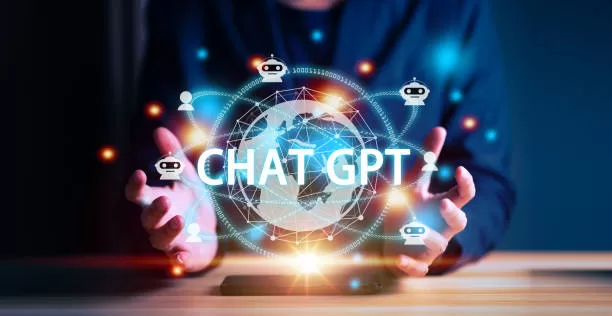ChatGPT: The Technology, Pitfalls and Fear

Open AI received billions in new funding from Microsoft in January
Washington The excitement surrounding ChatGPT chatbot – an easy-to-use AI chatbot that can provide either an essay or program upon demand in just a few seconds – has thrown schools into chaos and turned Big Tech green with envy.
The possible impact of ChatGPT on society is hazy and undetermined, even though its creators on Wednesday unveiled a paid subscription version available in the United States.

image source:Bloomberg
Are we at a tipping point?
The November release of ChatGPT by California company OpenAI is a pivotal moment in introducing a new wave of artificial intelligence technology to the general populace.
It needs to be clarified whether ChatGPT is a breakthrough, with some critics claiming it was an excellent PR strategy that helped OpenAI achieve billions of dollars in investment from Microsoft.
Yann LeCun, Chief AI Scientist at Meta and professor at New York University, believes “ChatGPT isn’t an intriguing scientific advancement,” calling the app a “flashy demo” developed by talented engineers.
LeCun, in an interview with The Big Technology Podcast, said ChatGPT is devoid of “any internally-generated model for the universe” and churns out “one word upon another” using patterns and inputs found on the internet.
“When using these AI models, it is important to be aware that they are slots, not calculators, ” advised Haomiao Huang of Kleiner Perkins, a Silicon Valley venture capital firm.
“Every time you inquire and pull your arm, you will get an answer that can be fascinating… but it’s not always the case… The results can be incredibly uncertain,” Huang wrote in Ars Technica, the tech news site.
Like Google
ChatGPT runs on the AI language model that’s more than three years old, GPT-3 from OpenAI. The chatbot uses only a portion of its capabilities.

Image Source : Bloomberg
The real revolution is human-like chats, said Jason Davis, a research professor at Syracuse University.
“It’s familiar and conversational, and you know what? It’s like typing into a Google search query,” he said.
ChatGPT’s rockstar-like popularity even stunned the creators of OpenAI, who received billions of dollars in new funding through Microsoft at the beginning of January.
“Given the size of the economic impact we can expect here, the more gradual approach is preferred,” OpenAI CEO Sam Altman spoke in an interview with StrictlyVC the newsletter.
“We released GPT-3 almost three decades back… that’s why the incremental upgrade from GPT-3 to ChatGPT I thought it could have been logical, and I’d like to do more research on why I wasn’t quite sure in that regard,” he said.
The danger, Altman added, was shocking both policymakers and the public. Altman, the company on Tuesday unveiled an algorithm to detect the text created by AI in response to concerns raised by teachers that students might depend on artificial intelligence to complete their work.
What next?
From speechwriters to lawyers as well as journalists to coders, all are waiting with bated breath to experience the disruption brought on by ChatGPT. OpenAI just unveiled a pay version of the chatbot. It costs 20 dollars per month for an enhanced and more efficient service.
As of now, the first real-world application of OpenAI technology will be in Microsoft applications.
While details are scarce, many believe that ChatGPT-like capabilities will appear in Bing, the Bing search engine, and within Office. Office suite.
Take a look at Microsoft Word. It doesn’t require me to write an essay article, and I need to explain to Microsoft Word what I wanted to write using a question,” said Davis.
He believes that influencers on TikTok and Twitter could be some of the initial ones to adopt this type of artificial intelligence since becoming viral takes a lot of content, and ChatGPT will handle this in a matter of minutes.
This naturally creates the possibility of disinformation and spamming on the industrial level.
As of now, Davis said the power of computers limits the reach of ChatGPT; however, once it increases, the possibilities and dangers will multiply.
Much like the near-to-becoming arrival of autonomous vehicles that never really happen, experts only agree on the matter for months or even years.
Ridicule
LeCun claimed that Meta and Google have been hesitant to release AI that is as powerful as ChatGPT because of the fear of backlash and ridicule.
Bots that aren’t as adamant about their languages, like Meta’s Blenderbot or Microsoft’s Tay, were quickly demonstrated to be capable of creating offensive or racist content.
Tech giants need to think carefully before releasing something “that will be a spout of rubbish” and cause disappointment to the user, he said.















